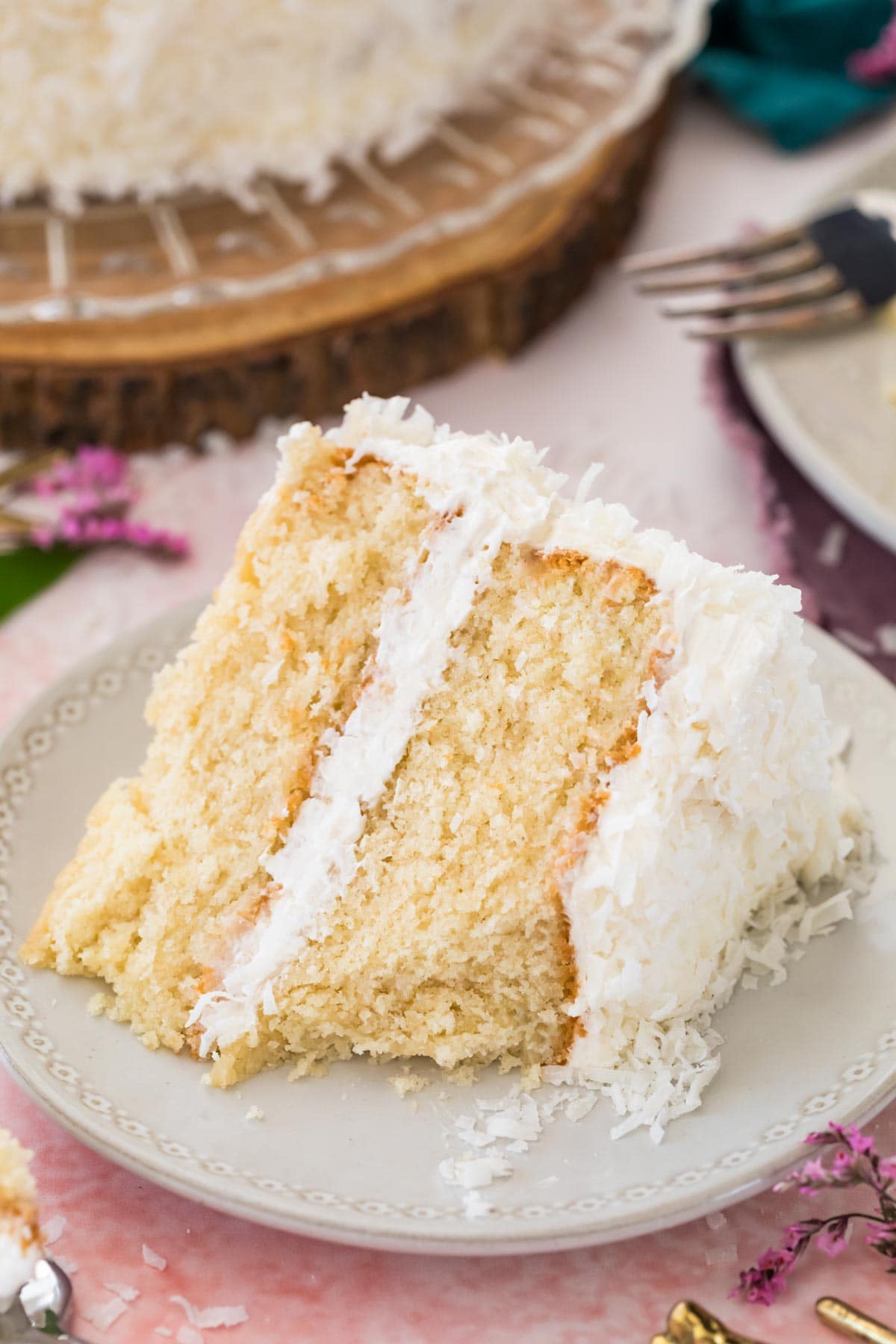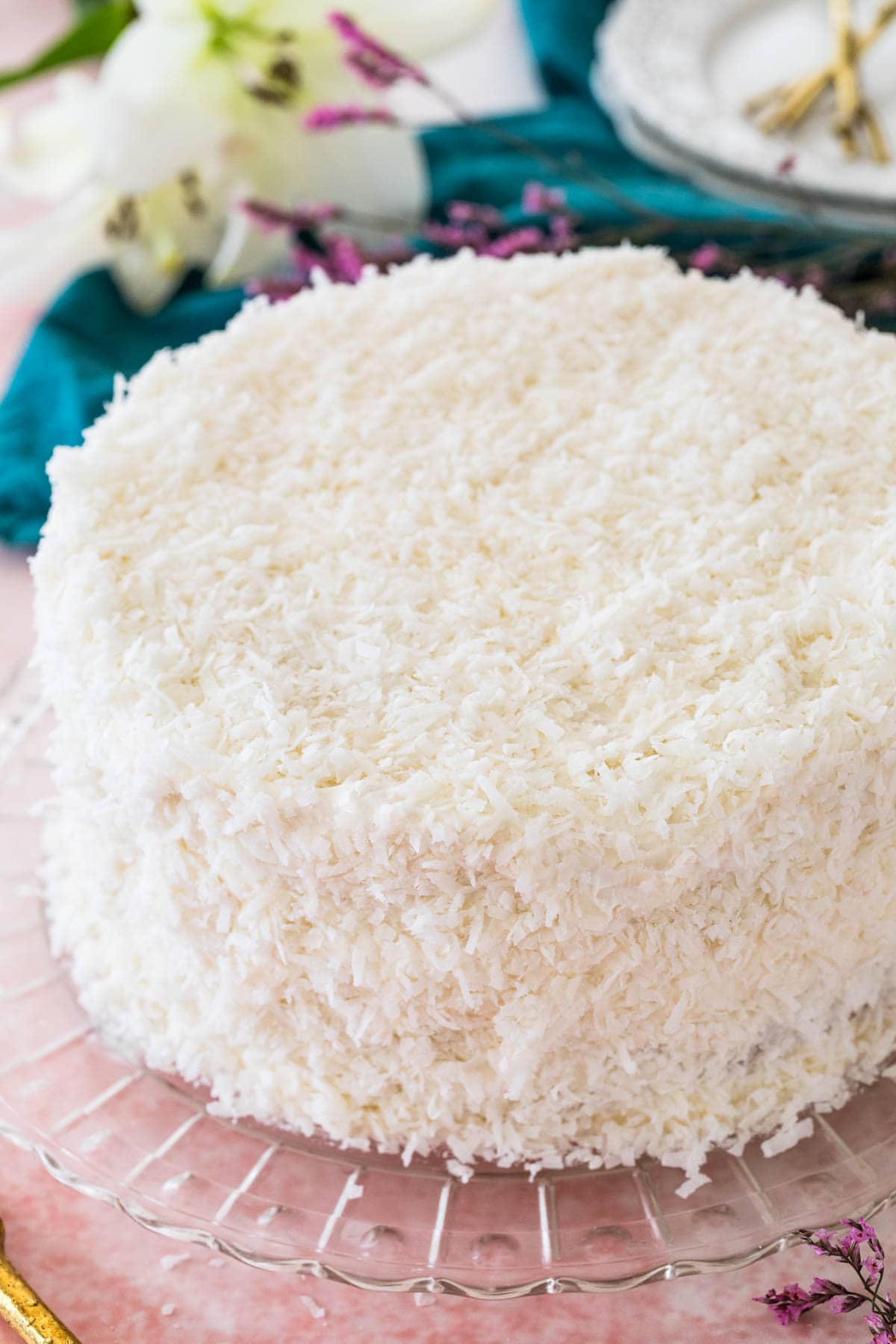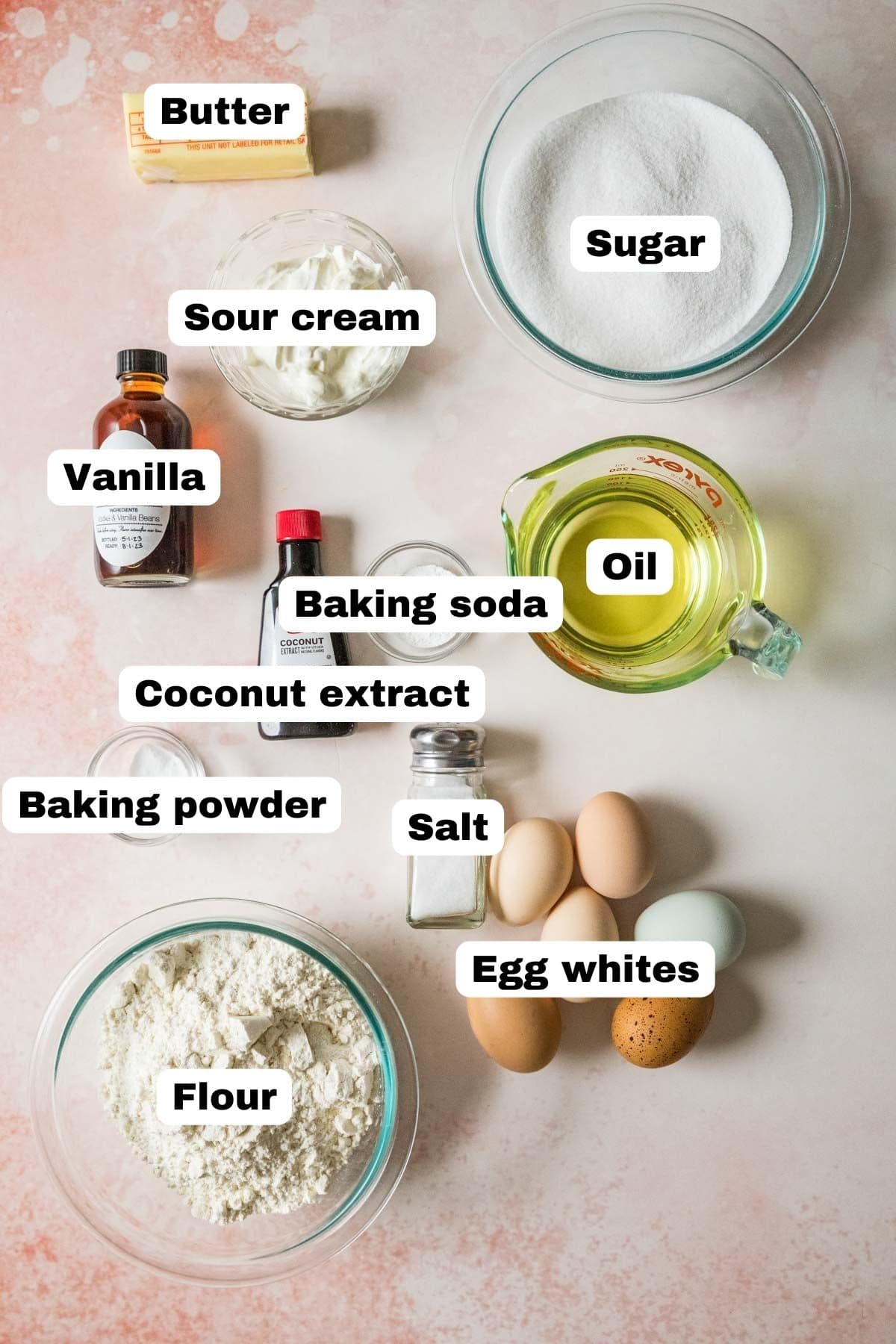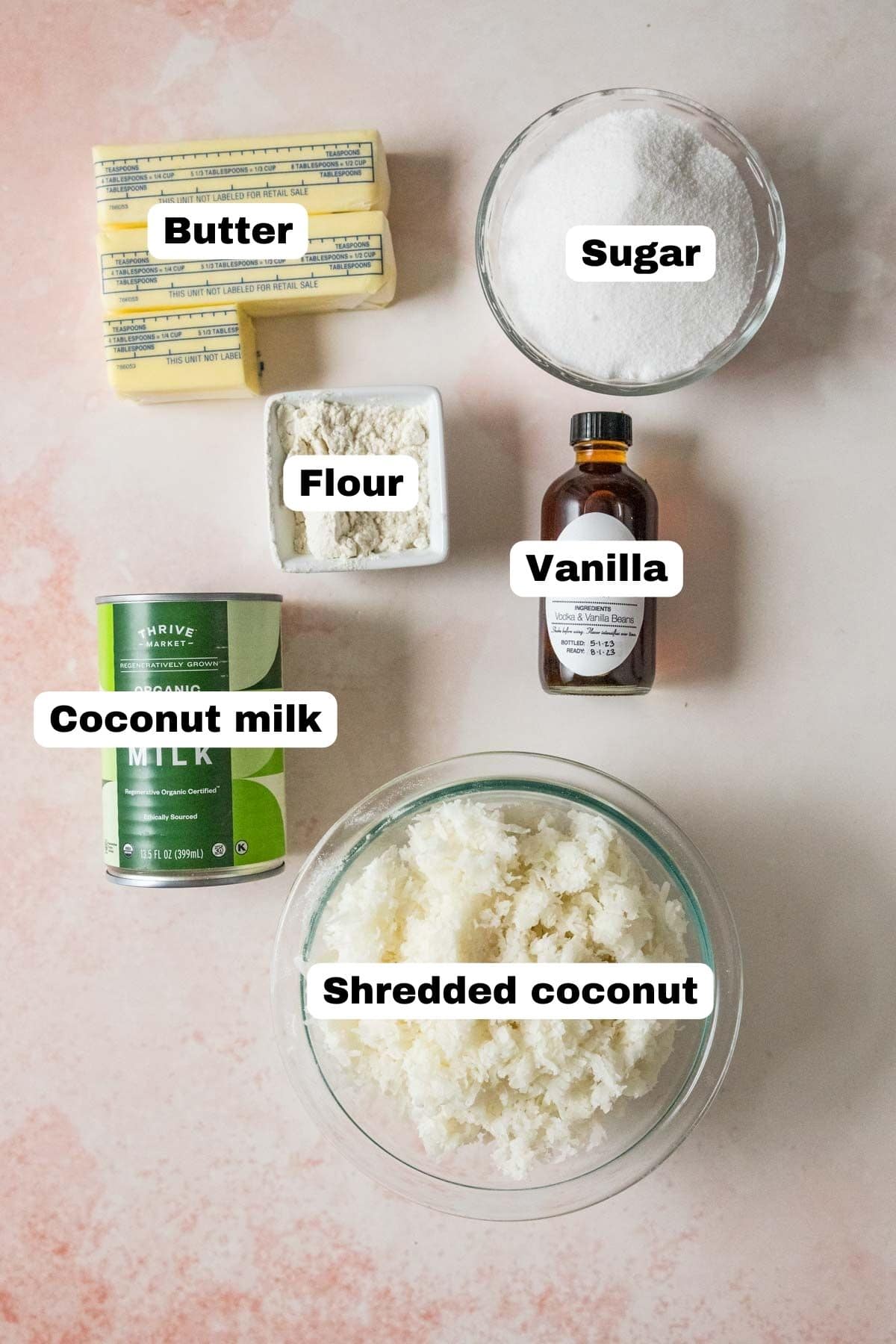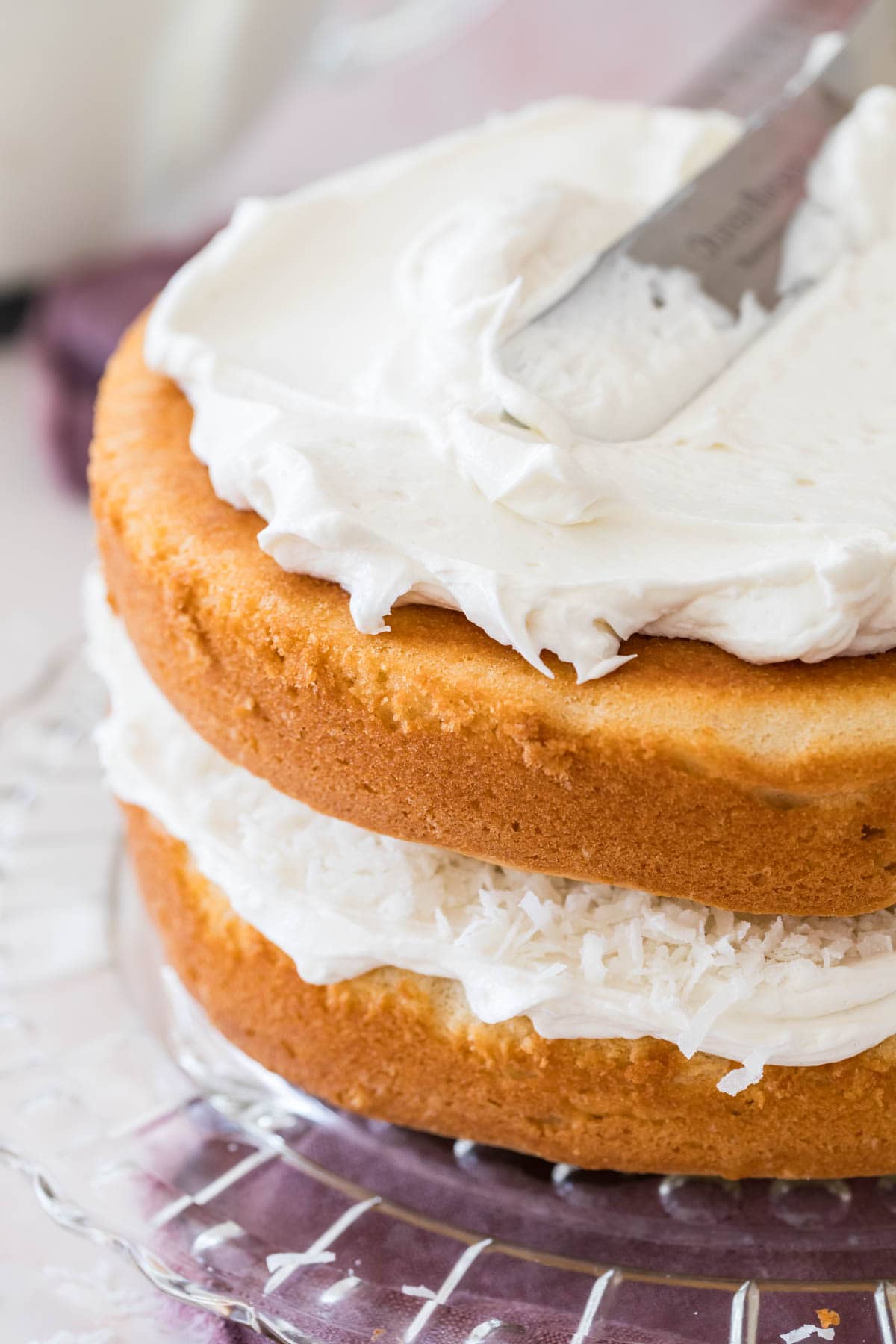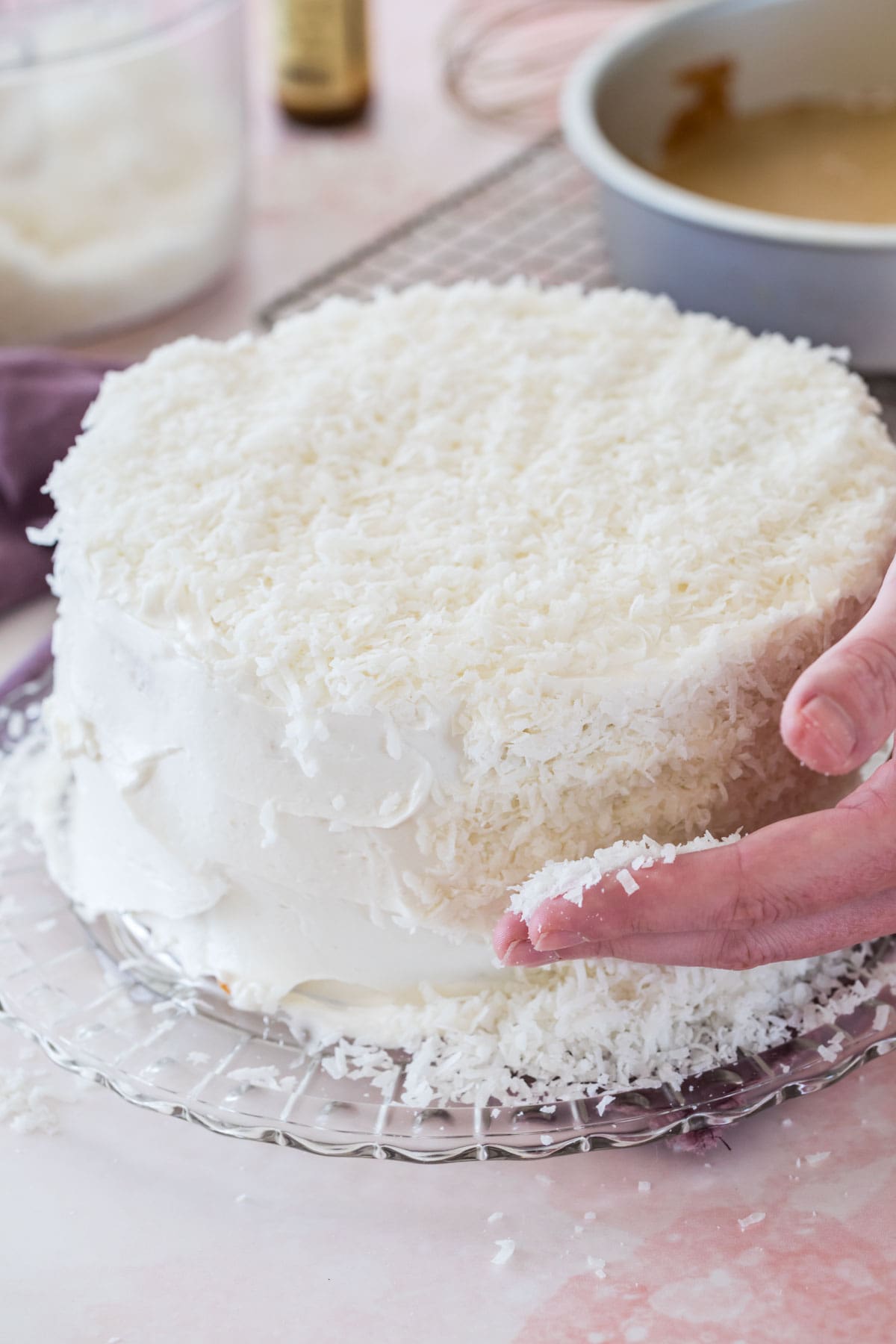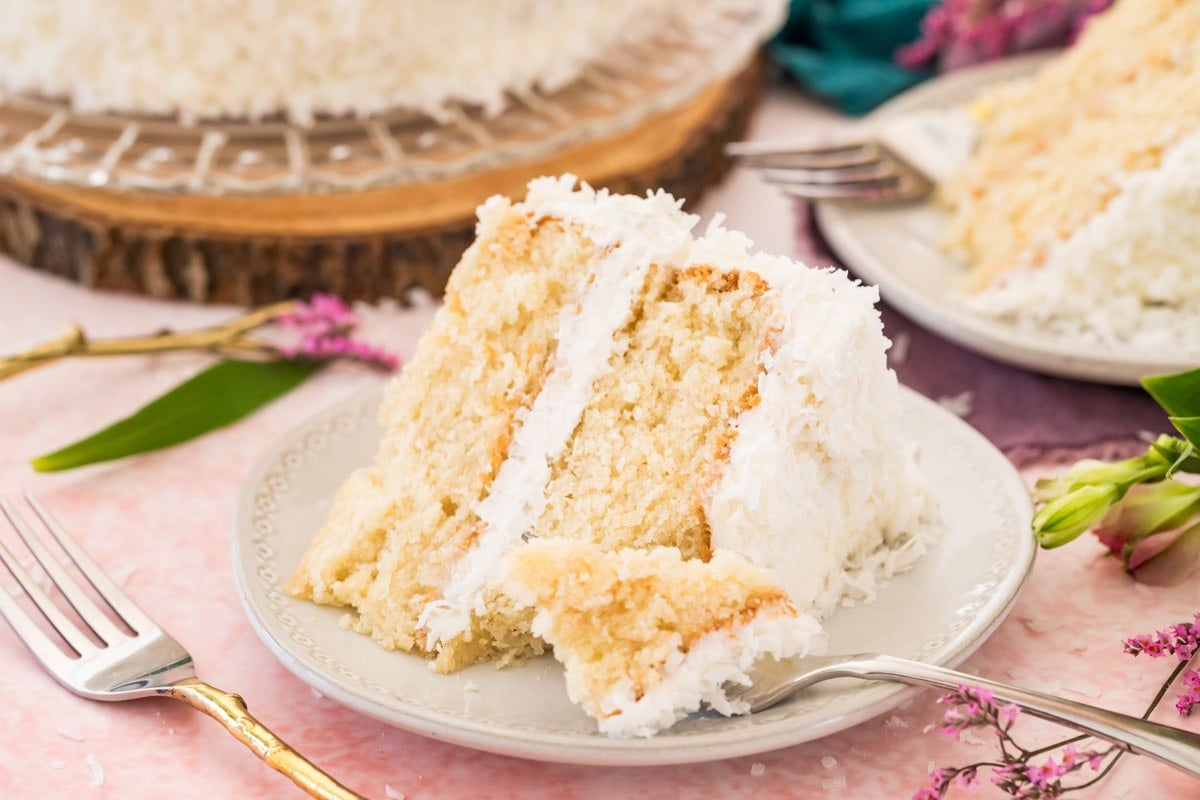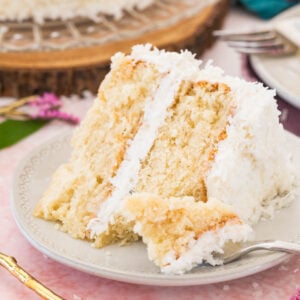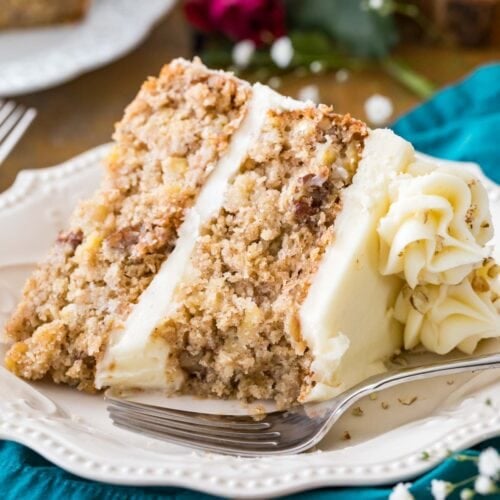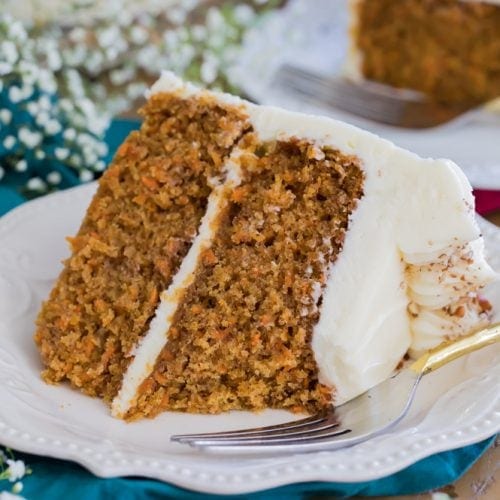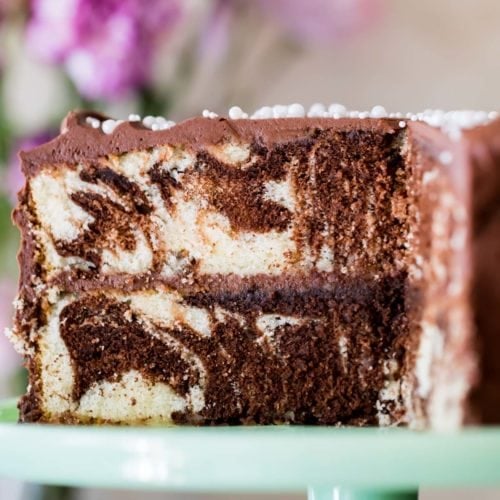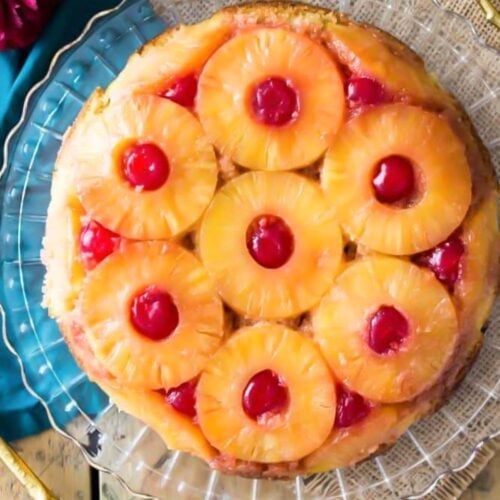Soft, Fluffy Coconut Cake
Those of you who follow the blog regularly (💗) are familiar with a lot of my grandmother’s recipes. Maybe you’ve tried her hot milk cake, potato candy, or apple dumplings, but her coconut cake with its unique, silky-smooth frosting was always one of my favorites. However, her cake layers always came from a box! We don’t do box-mixes here, so, after years of testing cake recipes, I finally developed a super soft, super moist, sturdy and stable cake with a tender, melt-in-your-mouth crumb that works as the perfect base for today’s coconut cake. It’s a stunning, but also simple cake, with tender, soft, fluffy layers and an old-fashioned frosting.
Why You’ll Love This Recipe
Incredible texture. If you’ve ever struggled in the past with dense, dry, cornbread-esque cakes, you’re in for a pleasant surprise with this one. Not only is it carefully designed to be soft, tender, and so moist, I also include notes in the recipe and video to help prevent some classic mistakes bakers run into when making cakes from scratch. The BEST flavor. It’s tricky to balance the flavors of coconut cake when coconut has such a distinct flavor that can quickly become overwhelming. We lightly flavor the cake layers with a bit of coconut extract, then use coconut milk in the frosting and cover everything in shredded, sweetened coconut. The perfect balance. A proven recipe. I first shared this recipe in 2016 and it’s since not only been a favorite with my family but has received dozens of five star reviews ⭐️⭐️⭐️⭐️⭐️. It’s just cute! It looks like a giant, fluffy snowball and tastes like heaven. It’s a beautiful dessert to grace your Easter (or any holiday) dessert table.
While this cake is great any time of the year, something about it just feels like springtime to me. Maybe it’s the fresh coconut flavor, maybe my grandmother made it around Easter every year, but to me it belongs in the ranks of other spring recipes like my hummingbird cake, carrot cake, and carrot cupcakes (all great springtime dessert options!).
What You Need
For the Cake Layers
This is a moist fluffy cake comprised of two thick layers. I adapted it from my gender reveal cupcakes because I loved the fluffy crumb and taste of those. Here’s an overview of what goes into the cake layers.
Butter and oil. I took a page from my vanilla cake and chocolate cake and used a blend of butter and oil for best flavor and texture (the oil really helps keep the cake moist since it ideally is refrigerated). Flavor. Vanilla extract is essential for flavor. While my grandmother never used coconut extract in her cake, I like the lovely tropical flavor a splash of it adds to my coconut cake and recommend using it. Sour cream. Full-fat sour cream (or a plain, full-fat Greek yogurt) works best here. Sour cream adds a lovely depth of flavor in addition to moisture (and that’s why it’s such a key ingredient in my yellow cake, too!). Egg whites. You’ll need just the whites for this recipe, discard the yolks or save them to make creme brulee or chocolate pie. While this cake isn’t a white cake in color, it’s similar to that one in that it get much of its fluffy structure from whipped egg whites.
For the Frosting
The frosting that I use (and my grandmother used) for coconut cake is a bit unique so I thought it deserved its own section. It uses flour and is quite similar to my ermine frosting in taste and texture, only there’s no need to make a roux!
Butter. When I first shared this recipe I used a mix of butter and shortening (I think my grandmother only used Crisco). I don’t prefer to use this in my baking anymore so switched everything over to butter and have been very happy with the results. I use salted butter, but if you only have unsalted just add ¼ teaspoon of salt into the frosting. Sugar. We’re using granulated sugar, not powdered sugar. Because of this, the frosting needs to be beaten for an extended amount of time (over 10 minutes!) so that the sugar can fully dissolve. Flour. Since raw flour was in the news a few years ago for being contaminated, I now recommend heat-treating any flour that isn’t baked into your baked good (like edible cookie dough). This can quickly be done in the microwave in under a minute and I explain how to in the recipe card. Coconut milk. You can substitute whole milk instead, but I prefer to stay in coconut-theme since this is a coconut cake, after all, and opt for coconut milk. Shake the can very well before opening! Extract. I use just vanilla extract and skip the coconut extract here. You could certainly add a small amount if you wanted, but I felt it overpowered the cake and made things too coconut-y Coconut. My grandmother always used frozen shredded coconut, but I can’t ever find that in my grocery store. I use sweetened shredded coconut. Since that can be a bit stringy, I’ll often pulse it in my food processor for several seconds before using it on my cake.
SAM’S TIP: If you have a stand mixer, use it to make the frosting! This recipe requires a minimum of 12 minutes of stirring to properly dissolve the sugar. It’s great to have a machine do the heavy lifting! This is just an overview of the ingredients I used and why. For the full recipe please scroll down to the bottom of the post!
Helpful Tips When Making Coconut Cake
Coconut cake comes together pretty quickly and easily, but there are a few things that I wanted to cover in more detail before we begin:
Tips for the egg whites: This recipe calls for egg whites that need to be whipped to stiff peaks. Set yourself up for success and use a stainless steel or glass bowl (avoid plastic or silicone) and make sure it is completely clean, dry, and grease free. Make sure not even a tiny drop of egg yolk gets in with the whites or they won’t reach stiff peaks. (these are tips I’ve also shared when whipping egg whites for macarons and meringues). I demonstrate how I do this in the video in the recipe card, if that is helpful. Shred the coconut (again). Sweetened shredded coconut can sometimes be a bit stringy, lending itself to a texture that many people just don’t love. To help with this, I sometimes like to chop the coconut even finer; a few blitzes in the food processor usually does the trick! Bring in the machines (for the frosting). As I mentioned above, the coconut cake frosting is made with granulated sugar, which must be dissolved for the frosting to have its signature, smooth consistency. This has never taken me less than 12 minutes. Save yourself a major arm workout and use your stand mixer if you have one. If you don’t have a stand mixer or an electric mixer, you may want to opt for one of my other frosting recipes (I give a few options below!). The frosting WILL become smooth. Just keep mixing and be patient! It takes time but will ultimately be silky smooth.
Enjoy! Let’s bake together! Subscribe to my newsletter to be notified of all the newest recipes, and find my free recipe tutorials on YouTube 💜 I originally published this recipe in April of 2016. In 2019 I made some improvements to the cake recipe and in 2024 updated the post to be more helpful.
More Cake Recipes You Might Enjoy:
